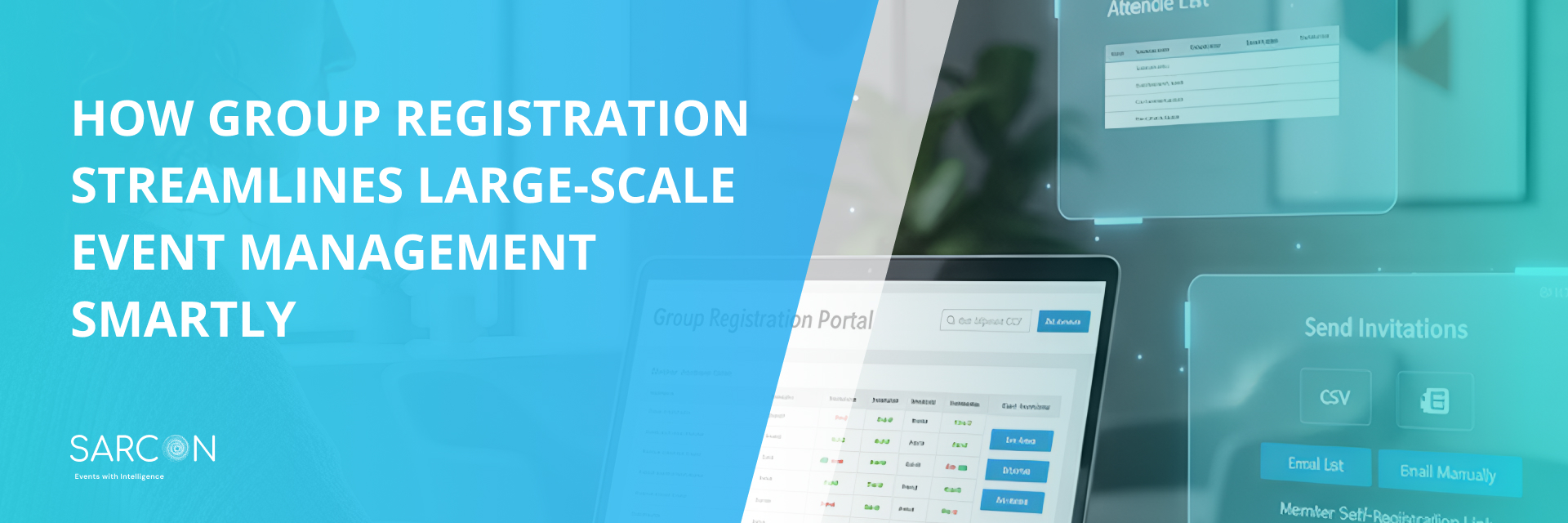Hosting an event is an exciting endeavor, but its success largely depends on how effectively you can attract and engage your target audience. One crucial aspect of this process is optimizing your event registration page. Your registration page is often the first point of contact between potential attendees and your event, making it a critical element in your event’s overall success. To help you maximize the impact of your event registration page, here are seven tips for success.
1. Keep it Simple and User-Friendly
The first rule of creating an effective event registration page is to keep it simple and user-friendly. Visitors should be able to navigate your page effortlessly, find the information they need, and complete the registration process without any hiccups.
- Clear and Concise Information: Provide clear, concise details about your event. Include the event name, date, time, venue, and a brief description. Use straightforward language that anyone can understand.
- Intuitive Design: Choose a clean and intuitive design for your registration page. Ensure that the layout is easy to follow, with a logical flow from top to bottom.
- Mobile Optimization: Ensure that your registration page is fully responsive and mobile-friendly. Many people use smartphones and tablets to register for events, so it’s crucial that the page functions smoothly on various devices and screen sizes.
- Streamlined Registration Process: Minimize the steps required to register. Collect only essential information, such as name, email address, and payment details if applicable. Offer guest checkout options to reduce friction for first-time attendees.
2. Create Compelling Content
The content on your event registration page should convince visitors that attending your event is worth their time and money. Engaging content can significantly impact their decision to register.
- Compelling Headline: Craft a captivating headline that communicates the value of your event. Highlight what attendees will gain or experience by participating.
- Engaging Description: Write a compelling event description that outlines the key benefits, speakers, topics, or activities attendees can expect. Use persuasive language to evoke excitement and curiosity.
- Visuals: Incorporate high-quality images or videos related to your event. Visuals can convey the atmosphere and excitement surrounding your event, making it more appealing.
3. Implement Clear Calls to Action (CTAs)
Your registration page should feature clear and prominent calls to action that guide visitors towards registration. Effective CTAs are essential for converting visitors into attendees.
- Strategic Placement: Position your registration buttons strategically throughout the page, especially after key pieces of information. Use contrasting colors to make them stand out.
- Action-Oriented Language: Use action-oriented language in your CTAs. Instead of generic phrases like “Click here,” opt for more compelling phrases like “Register Now” or “Secure Your Spot.”
- Limited-Time Offers: Consider incorporating urgency by indicating limited-time offers or early-bird discounts. This can encourage potential attendees to take immediate action.
4. Provide Clear Pricing and Payment Options
Transparency in pricing and payment options is crucial for building trust with potential attendees. Make sure visitors can easily understand the cost of attending your event and how to pay.
- Detailed Pricing: Clearly list the different ticket options and their prices. If you offer different packages (e.g., VIP, standard, student rates), outline what each includes.
- Payment Methods: Accept a variety of payment methods to accommodate your audience. Credit/debit cards, PayPal, and even cryptocurrency options can make registration more accessible.
- Refund Policy: Clearly communicate your event’s refund policy. Knowing they can get a refund in case of unforeseen circumstances can ease potential attendees’ concerns.
5. Include Social Proof and Testimonials
People are more likely to trust and attend an event that others have endorsed or attended before. Utilize social proof and testimonials to showcase your event’s credibility and value.
- Attendee Testimonials: Share quotes and testimonials from past attendees who had positive experiences. Highlight their feedback on the event’s content, networking opportunities, and overall impact.
- Social Media Links: Include links to your event’s social media profiles or pages. Active and engaged social media accounts can demonstrate a thriving community around your event.
- Partner Logos: If your event has reputable sponsors or partners, display their logos on the registration page. This can lend credibility and build trust.
6. Offer Value-Added Incentives
Entice potential attendees by offering value-added incentives that make registering for your event even more appealing. These incentives can differentiate your event from others and encourage early registration.
- Early-Bird Discounts: Provide discounted ticket prices for those who register well in advance. Early-bird discounts create a sense of urgency and reward attendees for committing early.
- Exclusive Resources: Offer exclusive resources or content to registrants, such as e-books, whitepapers, or access to a private community or forum related to your event’s theme. These extras can sweeten the deal and provide additional value.
- Networking Opportunities: Highlight the networking opportunities your event offers. Mention any scheduled meet-and-greet sessions, workshops, or social events where attendees can connect with speakers and peers.
7. Optimize for SEO and Analytics
Make sure your event registration page is discoverable on search engines and equipped with analytics tools to track its performance. This will help you reach a wider audience and make data-driven improvements.
- SEO-Friendly Content: Incorporate relevant keywords in your event description, headlines, and meta descriptions. Optimize images for SEO by adding alt tags. A well-optimized page can attract organic traffic from search engines.
- Analytics Integration: Use analytics tools like Google Analytics to track user behavior on your registration page. Monitor metrics such as page views, bounce rate, and conversion rate. This data can provide insights into what’s working and what needs improvement.
- A/B Testing: Experiment with different elements on your registration page, such as CTA button colors, placement of key information, or the wording of your headlines. A/B testing allows you to refine your page based on user preferences and behaviors.
Conclusion
Optimizing your event registration page is a strategic move to boost attendance and create a positive user experience. By implementing these seven tips, you can create a registration page that not only attracts attendees but also ensures a smooth registration process. Remember, it’s not just about registrations; it’s about delivering a memorable event from start to finish.
FAQ
Q: What information should I include in my event registration form?
Stick to the essentials: name, email, and any vital details specific to your event, like dietary preferences or t-shirt size.
Q: Can I use free registration forms for paid events?
While free registration forms are suitable for free events, for paid events, it’s essential to include payment processing options on your registration page.
Q: Is it necessary to include testimonials on my event registration page?
Testimonials build trust and credibility, making potential attendees more likely to register. Including them is highly recommended.
Q: What are some best practices for event registration form design?
Keep the form simple, asking for only essential information. Use a single-column layout, clear labels, and error messages. Implement autofill options and validation rules to enhance user experience.
Q: How can I promote my event registration page effectively?
Utilize multiple marketing channels, including social media, email marketing, and partnerships with influencers or industry organizations. Craft persuasive messaging and highlight the unique value of your event.
Q: Is it necessary to include a registration fee on the page?
Yes, transparency is key. Clearly state the registration fee, if applicable, and any early bird discounts or special pricing options. Avoid surprising attendees with hidden fees.



